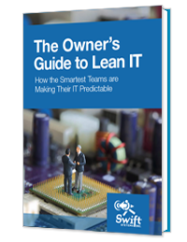
Why BYOD Cloud Computing Can Save Your Company Money
The Bring Your Own Device (BYOD) movement is gaining strength in America. But just how widespread is it? Along with cloud computing, the popularity for smaller businesses to use this model is steadily increasing.
Sixty percent of businesses currently use a BYOD model, and forecasters suggest that number will rise to 90 percent in the years to come. Fifty-four percent of American companies also use public or private cloud computing systems. Separately, these innovations can offer real benefits, but together, they offer real value for businesses and employees.
Cloud Computing Can Make BYOD More Secure
Security is the biggest hurdle the BYOD model has to overcome in the eyes of a lot of IT professionals. If a worker’s device falls into the wrong hands, employers fear that their corporate secrets will, too. With 46 percent of employees admitting they’ve let someone else use the device they use for work, it seems those fears are justified. Cloud computing can alleviate this concern by making sensitive corporate data much more secure.
With the rise of laptops and smartphones in the workplace, traditional and mobile cloud computing are the most obvious solutions. With these services, storage and data processing occurs outside the mobile devices. As information isn’t stored on any employee’s device, corporate documents enjoy greater security.
While businesses can ensure their own devices have proper antivirus and malware protection, they give up some of this control with a bring your own device model. Thankfully, this can also be remedied with cloud computing. Mobile device management tools help secure devices from outside threats by using a cloud environment from a central location.
Mobile device management tools also enable employers to remotely wipe lost or stolen devices to ensure sensitive data isn’t accessed by people outside the organization. With a third of workers admitting that the work files on their personal devices aren’t encrypted, this extra security is crucial.
Personal devices which access business infrastructure are seen as easy access points for corporate invaders. Mobile device management tools are an integral part of minimizing the risk of data breaches.
Cloud Computing Can Improve Visibility for Employers
There’s no doubt that a BYOD workplace model increases the temptation to waste time in the office. It’s something we all do from time to time, but it’s much easier when your favorite games are just a click away.
Cloud computing can minimize time-wasting behaviors as it provides greater visibility for employers. Businesses with cloud security systems which offer URL or website filtering can keep track of the websites their employees visit during work time.
Organizations should communicate company policies concerning workplace activities on the business network and monitoring measures in place to ensure workers stay on the straight and narrow. It’s also important to reveal what data will remain private to alleviate staff concerns. Two-thirds of employees who use their personal devices at work say that their workplace does not have a BYOD policy. Often instituting such a formal guideline is all employees need to ensure their online behavior meets company standards.
BYOD and Cloud Computing Cut Costs
Both bring your own device and cloud computing structures have the potential to save companies serious dollars. When both systems are employed, the savings to businesses are truly staggering.
It’s clear that BYOD saves a company from the outset, as they no longer need to spend money on employee devices. Employees will willingly spend an average of $965 on their devices and $734 on internet data plans.
The savings continue through the life of each device as the company is no longer required to spend money maintaining, supporting, or even repairing their workers’ laptops or smartphones. Add in the increased productivity, which some believe equals almost an extra hour each day, and studies suggest American companies can save as much as $3,150 for each employee every year.
New research shows that American and British firms instituting cloud computing systems reduced their infrastructure costs by 23 percent. These systems eliminate the need to make and distribute paper copies of documents, as employees can find digital versions online. This represents significant savings in paper and ink, as key documents often need to be revised and reprinted many times. The cost to businesses owning and running their own servers is also significantly more than that of utilizing a cloud. As the cloud manages infrastructure, businesses can also run efficiently with fewer information technology experts.
It’s clear that a company implementing both new technology trends has the potential to significantly lower its bottom line.
Cloud Computing Makes BYOD Work More Efficiently
When employees use company-provided devices, in some ways, life is easier for businesses. They know their employees’ computers will be on their desks in the morning, just where they left them at the end of the day before. There’s no danger of an employee forgetting to bring their laptop, or having it stolen on the subway.
Despite these concerns, it seems bring your own device workplace models are here to stay. Employees love using their own computers and smartphones, and happy employees are productive employees. Companies know this, with 70 percent of those surveyed believing a BYOD model can improve the productivity of their workforce.
Cloud computing can help workplaces deal with potential disruptions. Should a worker’s preferred device become lost, stolen, or inoperable, they can simply start working on another machine. With all vital data stored on the cloud, this process is seamless.
Cloud Computing Can Make Desktop Virtualization Possible
Currently, workplaces typically use cloud storage to house key corporate files, folders, and documents. However, in time, forecasters believe we’ll see entire workspaces housed on the cloud. An employee’s device would become simply a terminal for connecting to the cloud-based desktop. A worker would simply enter in his login details and become instantly connected to your work desktop.
As nothing would be stored locally, security would be virtually assured. Since an employee would need to log in to the system to work, their employer could feel confident their work hours were spent on business-related tasks. When they moved on to a new position, their boss could feel confident they weren’t taking company documents with them. They’d simply take their preferred device to their next role, and receive new login details to access their new company’s system.
Look to Swift Systems to help for BYOD cloud computing
By embracing the latest technology trends of BYOD and cloud computing, businesses can enjoy all these benefits and more. Swift Systems can help your company manage those benefits to the full extent while avoiding the pitfalls.
Whether it’s managed virtual private cloud services, managed virtual servers, or, especially for BYOD, virtual desktop infrastructure, let the professionals at Swift guide you from start to finish.
Contact us today to see just how Swift Systems can save you money and make your company more secure.

IT systems are foundational to modern businesses. Too often, that foundation is unsteady. Unpredictable outages, insecure networks, and unreliable performance from mission-critical systems can jeopardize your entire business.
There’s a better way. Learn how.
Get in touch with us for a free consultation with one of our technical experts. We’ll review your current systems, assess your needs, and identify the coverage options to best meet them.
Get in touch with us by phone:

